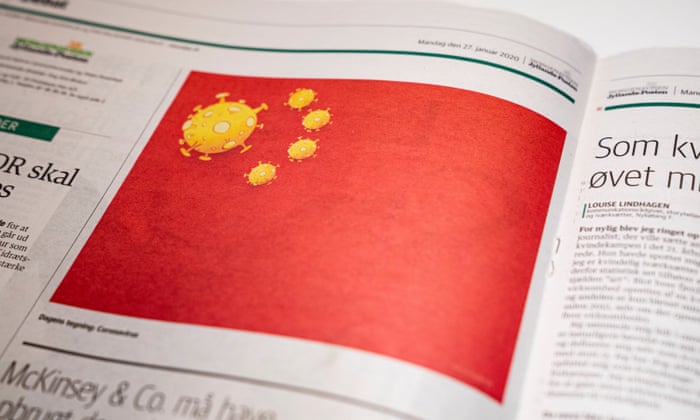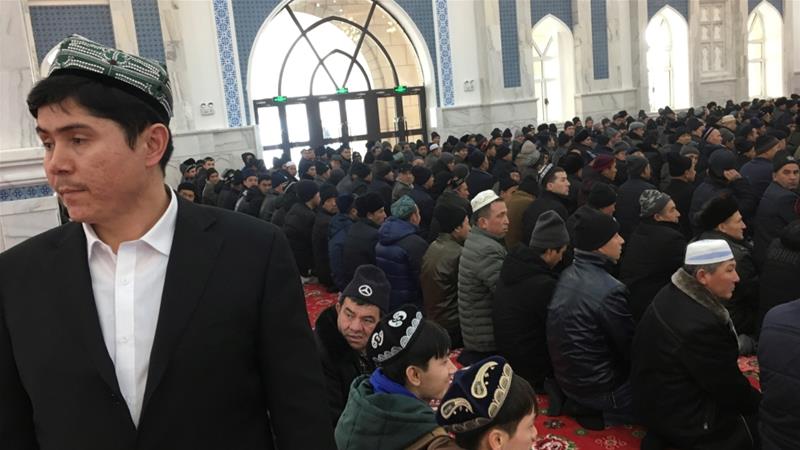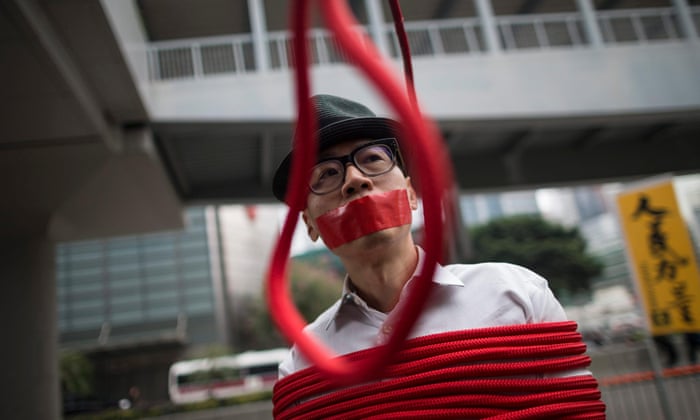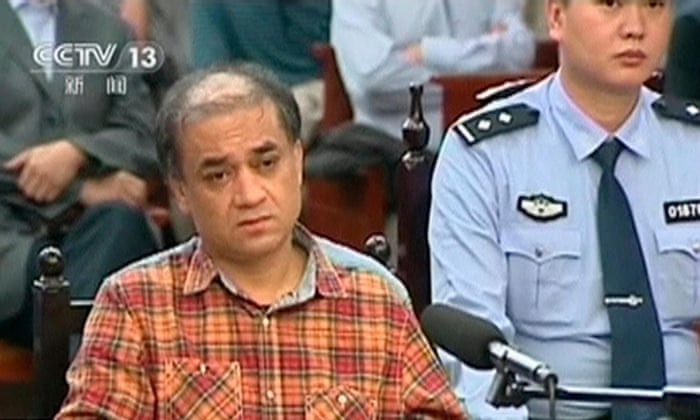Ten years ago in Hong Kong, any citizen could run for legislative elections with minimum fuss.
It didn’t matter if new lawmakers added radical slogans to their
oath of office.
Activists and protesters generally accepted that law enforcement was impartial.
Immigration officers allowed overseas human-rights activists into the city with no problem.
While some
self-censorship was apparent in media and entertainment, the press was free, and no-one seriously claimed that expression of a mere opinion might be illegal.
Today in 2018, this is all changing.
Hong Kong people are gradually losing rights they once took for granted.
Another way of looking at it is that the sovereign power – the People’s Republic of China under the Chinese Communist Party – is reasserting and resuming its rights.
2014 – a turn for the worse
In retrospect, the rights situation for the first 15 years after the 1997 handover was fairly stable: Hong Kong made no meaningful progress towards democracy, but nor did it see its freedoms seriously deteriorate.
This changed in June 2014 when Beijing issued a ‘white paper’ on Hong Kong concerning the concepts of ‘One Country, Two Systems’ and ‘high degree of autonomy’.
Ever since the 1980s, Hong Kong officials had encouraged the notion that these phrases meant free and pluralistic Hong Kong would be insulated from the tightly controlled mainland system of government.
The white paper explained the correct understanding: that they were not fixed, absolute guarantees of Hong Kong’s constitutional status, but optional add-ons that China could adjust or remove at will.
This was a restrictive new definition of their meaning (and local officials modified their use of the slogans accordingly).
This was followed up a few months later by an edict that Hong Kong could elect its chief executive only if Beijing chose who was on the ballot.
Pro-democracy opposition figures bitterly complained that Beijing was breaking past promises enshrined in the Basic Law.
They missed the whole point of these imperial proclamations: that Hong Kong ultimately comes under and within the mainland system.
Indeed, when “interpreting” the Basic Law on several occasions since 1997, the Chinese government had established the principle that it could change the meaning of the law on a whim.
Hong Kong had been under Communist-style “rule by law” all along, though Beijing had applied it sparingly.
 A woman protests Beijing’s White Paper on Hong Kong at the July 1st pro-democracy march, 2014.
A woman protests Beijing’s White Paper on Hong Kong at the July 1st pro-democracy march, 2014. Since 2014, the trend of “mainlandisation” has been unmistakable, though incremental.
While the local administration implements the process (and insists nothing is really changing), it is obviously following directions from Beijing officials.
Some moves, like promoting patriotism in schools or banning disrespect for the national anthem, have been controversial but are arguably compatible with Hong Kong’s freedoms.
The weakening of lawmakers’ powers (which were being “abused by troublemakers”), has even been popular.
But other measures clearly point to creeping authoritarianism.
The once-impartial police and prosecutions services have started to arrest and prosecute opposition activists on protest-related charges that would not have been brought in earlier years.
Radicals are disqualified from the legislative council and the ballot on political-test grounds.
By picking on radicals in ones or twos for apparently isolated transgressions, Beijing has chipped away at rights without creating much stir among the general public.The Andy Chan/Hong Kong National Party affair is another step on this road, using the same tactic – attacking rights and freedoms by demonising and suppressing a “public menace” that uses them.
But this specific case looks likely to represent a milestone.
The ‘Hong Kong independence’ scareNo-one doubts Chinese leaders’ phobia about separatism, but the HKNP issue is so contrived as to be visibly embarrassing to local officials.

By picking this particular target, Beijing’s Liaison Office and other officials are in the awkward position of trying to convince us that the Chinese Communist Party (CCP) is genuinely petrified of this geeky not-very-inspiring Hong Kong kid.
Assuming we don’t buy that,
we must conclude that the whole exercise (extensive police surveillance, faux outrage from top officials) is a pretext for measures to curtail freedom of expression for everyone – an unprecedented step.Most local media blandly echo the official rationale about “red lines” and national security threats. But by attacking the Foreign Correspondents Club for hosting Chan, Beijing’s people have made it an international story.
For the first time, the wider world perceives a threat to Hong Kong as a free society with rule of law – an image the local administration tries hard to protect.The decision to create a panic out of the HKNP looks misjudged and potentially humiliating for the Hong Kong authorities.
However, if we look at the wider context, we can see why Beijing is prepared to use the Andy Chan independence issue to tighten control over Hong Kong.
It’s not about Hong Kong
The year 2014 is associated with Hong Kong’s Occupy/Umbrella protest movement, and many observers see Beijing’s subsequent clampdown in the city as a response to that.
This confuses – or at least oversimplifies – cause and effect
The prime mover here is Xi Jinping, who became general secretary of the CCP in 2012 and head of state and of the military in 2013.
Foreign analysts initially welcomed the new leader as a likely moderniser and reformer (glamorous wife, and family suffered Cultural Revolution purging).
But as a son of a senior revolutionary and Mao-era figure, Xi is self-consciously of the CCP aristocracy.
His policies since assuming power suggest that he sees himself as the saviour of a party that had become stagnant and lax and must now reassert far tighter control across an unruly society or fall from power.
He can be seen as a counter-reformist.
Xi grew up in an era when there was essentially one newspaper, one radio station, and the whole Chinese population stayed put and were assigned jobs, homes and rations.
He seems to believe that he can restore that ideologically purer and regimented order and take China forward in terms of economic and technological progress and emergence as an Asian – if not global – superpower.
Xi has purged political rivals and tamed China’s murky uber-tycoons.
The country is now several years into an ongoing clampdown on religion, the media, academia, civil society, independent lawyers, and other centres of power and incorrect thought and identity.
Hong Kong is a relatively small item on the list of Things to Rectify.
But judging from policies like the East Turkestan re-education camps and hubristic propaganda efforts, Xi and his underlings are comfortable erring on the side of overkill.
We can assume that the campaign against Hong Kong dissidents and the legal and constitutional rights that protect them will continue.
What next for Hong Kong?
The main player in Hong Kong is the Chinese government’s Liaison Office, which manages local United Front activities and guides the local administration of Carrie Lam.
Its current priority is to use the ‘independence’ scare to restrict freedom of expression. The China Liaison Office.
The China Liaison Office.
The local administration, which must do the dirty work, comprises bureaucrats hand-picked by Beijing for their lack of ideas.
While smugly indifferent to the city’s social problems, they take on the air of frightened hostages when reciting the Beijing line on sensitive issues.
It may be that behind the scenes they urge their mainland overseers to go easy, but to no end.
The structure does not accommodate meaningful opposition.
Interestingly, a few business and other pro-establishment figures are voicing concerns about overseas “misconceptions” that Hong Kong’s freedoms and rule of law are in decline – a coded warning that CCP heavy-handedness could harm business confidence.
Local representative politics is increasingly just ceremonial – Beijing obviously aims to make the legislative council a mainland-style rubber-stamp body.
Older pro-democracy figures who work within this system are powerless.
Radicals who are outside it face increasingly harsh treatment.
Some “moderates” are hinting that Hong Kong can have universal suffrage if it also finally passes the overdue national security laws required under Article 23 of the Basic Law.
This linkage is absurd: Beijing has left no doubt that it cannot allow anything other than a phony election in Hong Kong.
The government could float the idea to entertain the mainstream pan-democrats, who can’t resist bickering over constitutional small-print, and to distract media attention.
But given Beijing’s apparent impatience, it is more likely that the government will just move ahead within a year or so to ban pro-independence talk and other thought-crimes.
It could be via an Article 23 national security law, though this branding is toxic.
In practice, Beijing can impose whatever it wants by fiat – through Basic Law ‘interpretation’ or the sort of National People’s Congress edict used to legitimise the extension of mainland jurisdiction at the West Kowloon rail terminus.
It makes little difference.
The idea that the courts can be a bulwark of local freedoms is sadly mistaken.
If necessary, Beijing can use the interpretation loophole to override the judiciary.
From Xi Jinping’s point of view, there is no reason why CCP-style “rule by law” should stop at the Shenzhen border.
There is only one source of power in the PRC.
So this points to the banning of organisations for their views and formal curbs on freedom of expression in Hong Kong.
The initial targets will no doubt be young radicals like Andy Chan.
But once Beijing’s officials start declaring dangerous ideas off-limits, they will surely see redefining “red lines” as a necessary tool of control over the city.
There’s more to come
An obvious example would be to criminalise calls for the downfall of the CCP.
Patriotic “grassroots” groups will loudly demand more such action against national "traitors".
To ease the slide into censorship, we expect local telecoms companies to ‘voluntarily’ censor undesirable online content.
Institutions that are already bending with the wind in various ways – like the media, academia, professional associations, faith groups, even financial analysts – will continue to adapt through pre-emptive self-discipline.
How far does this go?
Will Hong Kong media outlets be punished or closed for endangering national security?
Will troublesome lawyers be arrested for subverting state power?
Will we see outspoken student leaders making televised confessions?
Will we be monitored by a “panopticon” internal security apparatus online and through facial recognition systems in public places (no doubt already installed in parts of the West Kowloon rail station)?
All we can say is that what sounded unthinkable 10 years ago is happening now.

Establishment optimists trust that mainlandisation will stop at damaging the business environment. Certainly, local bureaucrats cling to the city’s image as a global business hub.
But this is one area where the local administration and Beijing are not on the same wavelength.
The Chinese leadership puts its own control before the reputation of an ex-colony’s courts and bureaucracy – or foreign companies’ confidence.
That said, corporate interests that Beijing wants to co-opt or reward (probably owned by ethnic Chinese) may find new opportunities arising from Hong Kong’s ‘integration’ with the mainland.
The Chinese elites do value Hong Kong as a zone under PRC sovereignty that has no capital controls, but the CCP has no special affection or need for many of the city’s clusters of international professional skills.
Indeed, all the international, Cantonese and pre-1949 Chinese characteristics that make Hong Kong distinct from the mainland must ultimately give way to CCP-approved quasi-Confucian Han culture. Mandarin in schools or goose-step marching by uniformed groups are just a start.
Beijing’s long-term intention should be clear from the ongoing influx of mainland immigrants, the opening of new cross-border transport links, the pushing of a ‘Greater Bay Area’ conurbation and the growing campaign to encourage young Hongkongers to move north.
This is about symbolic, psychological and actual merging of Hong Kong and the mainland.
If it sounds grandiose,
it is just a small-scale version of the top-down demographic, cultural and infrastructural strategies that the CCP has used for decades to “Sinicise” the mainland’s Muslim, Tibetan and ethnic Korean regions. A brief optimistic conclusion
A brief optimistic conclusionThe end point, in theory, is Hong Kong as another secure CCP-controlled part of the PRC.
This implies that Xi Jinping’s vision for China as a whole becomes reality.
And that assumes that tighter centralised control in such a vast nation is a sustainable model that will succeed – that you can have a modern and innovative and thriving society in which the state controls the allocation of capital, decides what news and opinions everyone hears, and tells the population how many children to have.
Whether China’s economy is fundamentally sound or frail right now is a state secret known only to a perhaps-tellingly paranoid leadership.
But history strongly suggests that a dictatorship, Leninist/state-capitalist/strongman or otherwise, is not durable.
Hong Kong’s younger people – and their counterparts throughout China – will surely see a freer future one day.
As the venerable Jerome Cohen recently said: “I’ve been studying China for almost 60 years. This too shall pass.”


 Men pray at a mosque at the East Turkestan Islamic Institute during a government organised trip in Urumqi
Men pray at a mosque at the East Turkestan Islamic Institute during a government organised trip in Urumqi 

























